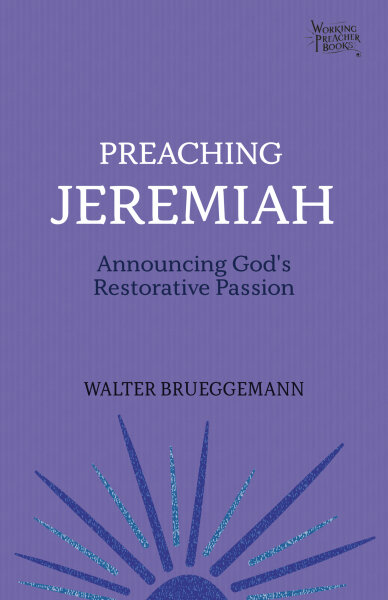Today’s Author: Scott Tunseth
Our lesson for this past Sunday from Jeremiah 29 is remarkably rich. No doubt we already heard that it the sermon. But a text like this is sort of like the gift that keeps on giving, so I will do a bit of my own unwrapping of it.
The prophet Jeremiah is “stuck” in Jerusalem but has a message for the exiles who have been forced to leave their homes and property and settled lives and carried off to Babylon. Can you imagine: one day you have a home and neighborhood and a church (well, a Temple) where God is present, and the next day your lives are a tangled mess. You are uprooted, removed from your comfortable routine world, and tossed into an unknown future. Well, the physical move thing I have a hard time imagining, but the unknown future . . . I guess we know a little bit about that.

I find Jeremiah’s message remarkable. He doesn’t tell the people to resist their captors and rebel. No, they are to go about living normally and even “seek the welfare of the city” (Babylon) that has completely uprooted their lives. In a day when we live with a steady stream of toxic political obstruction that is anything but seeking the welfare of others, this message is so countercultural. Almost like the gospel!
Last year, I edited a book by Walter Brueggemann called Preaching Jeremiah, so I went back to see what he had to say about Jeremiah 29:1-14. Turns out, he had quite a lot to say about this pivotal passage. Here’s just one of the points he makes about this text:
While the future depends upon God, the proximate practice of God’s future requires daring poetic and prophetic imagination. Despair is also a kind of imagination. It imagines that the world has failed, and the future is closed. Hope, by contrast, depends upon a counterimagination that refuses, but not too soon, to foreclose futures on the basis of present circumstances. Thus imagination of this sort voices the hiddenness of God powerfully at work in visible circumstance.
In short, Jeremiah’s message in the form of a letter to the disheartened exiles had to spark their imagination of a future that lay imperceptibly far beyond their present situation. They could easily have said “our lives are meaningless and our future is closed.” God has hidden from us, or at least we can’t see God at work in this new and strange place. What’s the use of having children? How is it possible to seek the welfare of THIS city?
But Jeremiah the prophet imagines for them. He imagines a future when the exiles will return home to once again till the land and create community together. Some who first heard Jeremiah’s message would not be around to see it fulfilled (seventy years is at least two generations), but this imagined future brought hope, a hope strong enough that it had to sustain even those who would not experience it.
And isn’t that the role of hope? That the generations living “imagine” a better future for those who come after. We need this kind of imaginative hope today more than ever. What’s the alternative? A failed world? No. God’s people can’t go there.
God, grant us hope-filled imaginations and the will to work in this world to secure a better future for all generations. This sounds like hard work; we admit it. But we also know that you are leading. Give us the courage to follow. Amen
“Mid-week devotions are authored by members of our community. If you are interested in creating a trio of reflections to be shared on an upcoming Tuesday, Wednesday, and Thursday contact Pastor Peter.“
